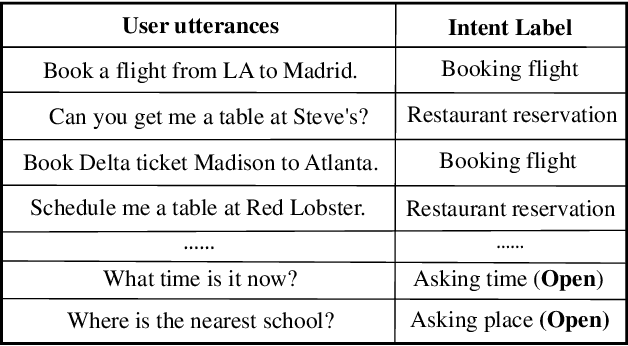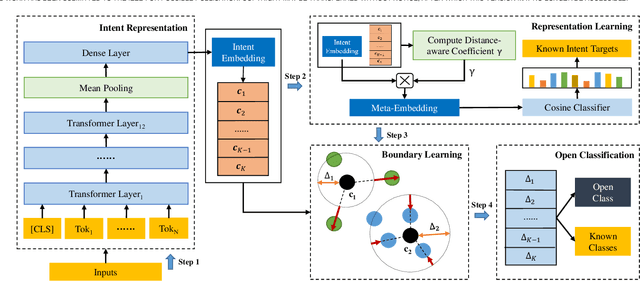Towards Open Intent Detection
Paper and Code
Mar 11, 2022



The open intent detection problem is presented in this paper, which aims to identify known intents and detect open intent in natural language understanding. Current methods have two core challenges. On the one hand, the existing methods have limitations in learning robust representations to detect the open intent without any prior knowledge. On the other hand, there lacks an effective approach to learning the specific and compact decision boundary to distinguish the known intents and the open intent. This paper introduces an original pipeline framework, DA-ADB, to address these issues, which successively learns discriminative intent features with distance-aware strategy and appropriate decision boundaries adaptive to the feature space for open intent detection. The proposed method first leverages distance information to enhance the distinguishing capability of the intent representations. Then, it obtains discriminative decision boundaries adaptive to the known intent feature space by balancing both the empirical and open space risks. Extensive experiments show the effectiveness of distance-aware and boundary learning strategies. Compared with the state-of-the-art methods, our method achieves substantial improvements on three benchmark intent datasets. It also yields robust performance with different proportions of labeled data and known categories.
 Add to Chrome
Add to Chrome Add to Firefox
Add to Firefox Add to Edge
Add to Edge